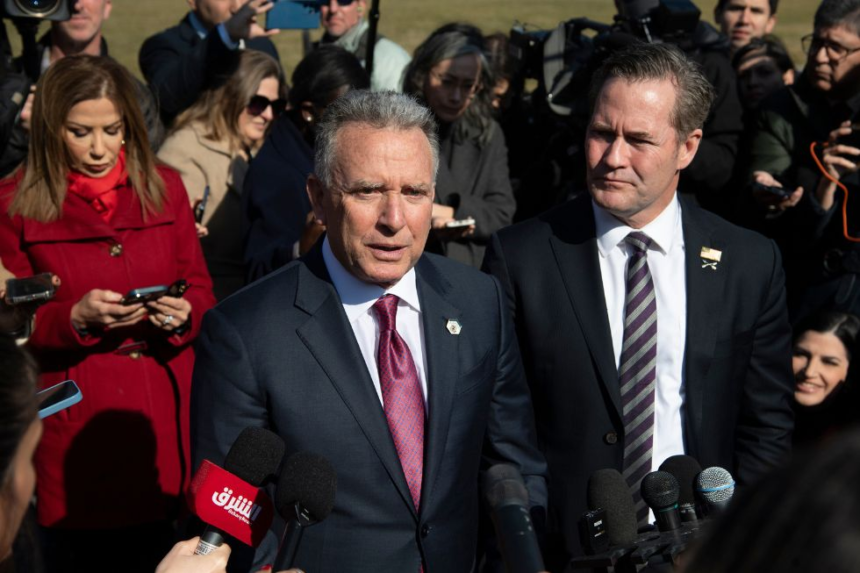
Background: Unexpected Overtures Toward Hamas
Recent statements by former Trump administration officials Steve Witkoff and Adam Boehler suggest a surprising shift in US policy thinking toward Hamas. Boehler made history last month by engaging directly with Hamas, marking the first official face-to-face contact between a US representative and the group, which is designated a terrorist organization by the United States.
Meanwhile, Steve Witkoff, Trump’s Middle East envoy, emphasized in a lengthy interview that understanding Hamas as a negotiating party is vital. “You can’t negotiate if you don’t even know who’s on the other side of the wall,” he said, drawing parallels between his approach and classic negotiation logic.
Netanyahu’s Strategic Silence
Israeli Prime Minister Benjamin Netanyahu has remained notably silent following these statements, despite their departure from Israel’s uncompromising stance on Hamas. Experts believe Netanyahu is avoiding public confrontation with Trump-era allies, particularly as he remains reliant on US diplomatic and military support.
Privately, however, Netanyahu remains committed to the complete destruction of Hamas, arguing that the group’s actions during the October 7 attack — which killed over 1,200 people — eliminate any possibility for negotiation or compromise.
Humanizing Hamas: A Tactical Calculus?
Both Boehler and Witkoff argue that Hamas is not entirely ideologically rigid. Witkoff emphasized the importance of recognizing that Hamas leaders “want to live,” a realization that led him to pursue more productive dialogue. Boehler noted his focus on identifying the “human elements” in negotiations, aiming to create leverage by appealing to shared human interests rather than ideological positions.
Though neither official supports a Hamas-led Gaza, both have indicated potential room for political inclusion — provided Hamas demilitarizes and removes itself from military authority. This nuanced stance marks a sharp contrast with Netanyahu’s zero-tolerance approach.
Rethinking Gaza: No Statehood, Just Tech
Instead of advocating a two-state solution, Witkoff proposed a vision of Gaza transformed through economic innovation. “Two-state is just a word,” he said. His alternative? A Gaza rebuilt not on aid but on cutting-edge industries such as AI, blockchain, robotics, and pharmaceutical manufacturing.
This economic-first proposal aims to give Gazans meaningful alternatives to extremism, but critics argue it fails to address deeper political and territorial grievances.
Qatar in the Crosshairs
Witkoff also defended Qatar’s role in negotiating with Hamas. “If I didn’t trust the Qataris, then that would be really problematic,” he said, justifying his refusal to meet Hamas directly by expressing faith in Qatar’s mediation. Netanyahu, however, has ramped up efforts to discredit Qatar’s influence, despite Israel’s past reliance on the Gulf state for indirect Hamas communication.
This disagreement further underscores the growing policy gap between Washington and Jerusalem.
A Slow but Steady Divergence?
Despite Boehler’s removal from hostage negotiations — reportedly at Trump’s direction — his and Witkoff’s comments reflect a broader re-evaluation of US strategy in the region. Both men argue that a full military solution is unrealistic and that negotiation, with pressure, may yield better results.
Witkoff remains firm in his rejection of Hamas governance, but his openness to Hamas’s humanity and potential political role, along with a new economic vision for Gaza, signals a possible divergence from Israeli doctrine.
As more hostages are released through negotiation rather than combat, and Hamas continues to demonstrate military resilience, Netanyahu may soon face a harder truth: the US might not be fully aligned with Israel’s Gaza strategy anymore.
Category: Geopolitics, Middle East Affairs
Tags: US foreign policy, Hamas, Gaza conflict, Steve Witkoff, Benjamin Netanyahu, Qatar diplomacy, Middle East peace, Trump administration, hostage negotiations, Gaza rebuilding









